China's e-commerce sector emerging from dark times
One major effect of the lockdowns in China has been disruptions to delivery and logistics services, resulting in many e-commerce businesses being unable to dispatch goods and fulfill online orders. Guangdong, an important light industrial area in southern China, with a comprehensive wholesale market system in its capital Guangzhou, has been particularly badly hit. Zaobao journalists Zeng Shi and Hedy Yang speak to e-commerce business owners and other players to find out more.
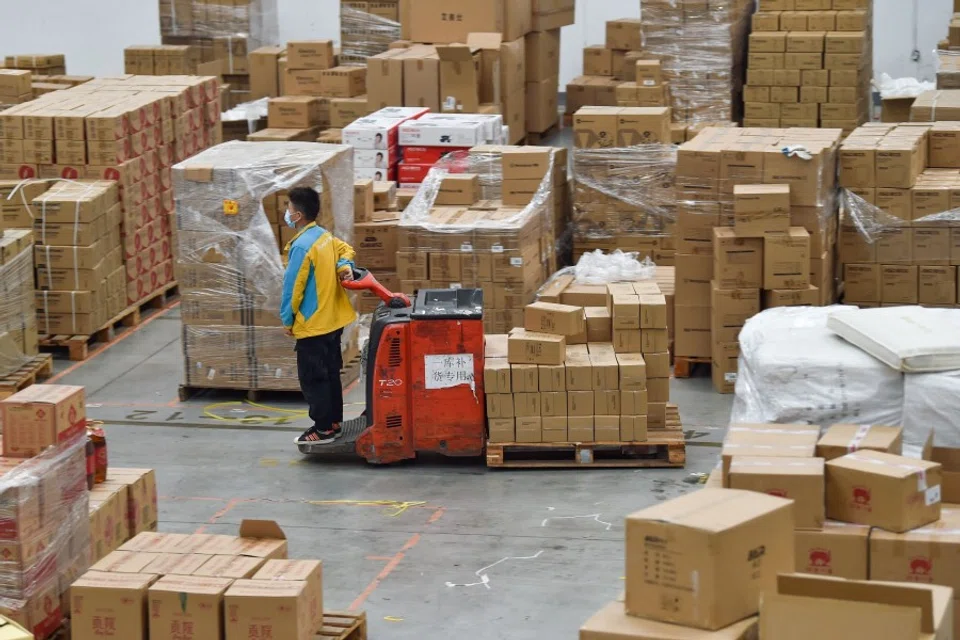
"After the lockdowns are lifted, e-commerce businesses like us will practically have to start from zero."
Zheng Min (pseudonym), who sells female casual wear on Taobao, is helpless as she looks at the growing number of cancellations on her online store.
It has been over two weeks since the 11 November Singles' Day online sales, but due to Covid controls, Zheng has not been able to ship over 10,000 orders. Each day, buyers lose patience and ask for refunds, while her warehouse located within Guangzhou's lockdown area is packed with millions of RMB worth of goods that cannot be moved.
Zheng's factory and warehouse are located at Nanzhou Road in Guangzhou's Haizhu district. In the second half of October, a nearby urban village saw a rapidly growing Covid cluster; from 24 October, the Zhongda Fabric Market was put under control measures, with all wholesale markets and logistics parks suspended. On 3 November, Haizhu district saw strict controls on the movement of people and traffic, followed by several extensions of ramped-up social controls. Until now, high-risk areas in the district remain under control measures.
Covid vs business in Guangzhou
Zheng and her colleagues began preparing for Singles' Day months ago, with launches of over 100 new clothes designs and waves of marketing. Just as they were ready to embrace the wave of consumption, the factories and warehouses were closed before Singles' Day, and delivery and logistics services were all halted. The clothes that were rushed out ended up piled in the warehouse, and online orders could not be dispatched.
"Clothes are seasonal, and if they aren't sold now, it will be difficult to sell them after." - Zheng Min (pseudonym), Taobao merchant
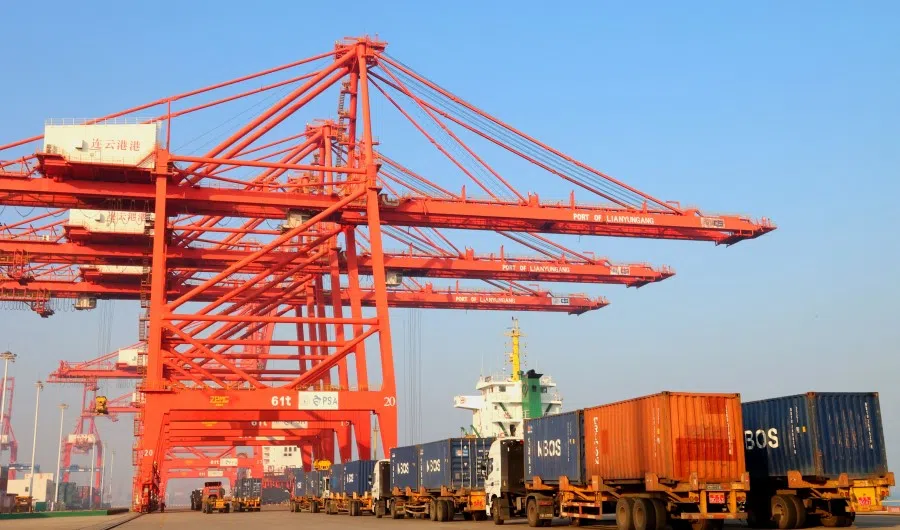
"Clothes are seasonal, and if they aren't sold now, it will be difficult to sell them after," said Zheng. She estimates that after a month of lockdown, they have lost at least several hundred thousand RMB at a conservative estimate, while still having to pay rent and labour, with their fourth quarter "essentially working for nothing".
Not only did they miss the year-end spending blitz, but their inability to promptly dispatch their products has also led to a chain reaction, as traffic and purchasing at their store has slipped and they have lost many customers.
Zheng said in April, their factory and warehouse were also closed for two weeks and no items could be dispatched. The store's backend traffic dropped, and after the lockdown was lifted, they had to do a lot of publicity to keep the store going before it gradually recovered after some time. The impact of this current wave hits harder and more broadly, and many e-commerce businesses will have to start from scratch.
Haizhu district where Zheng is based also hosts China's largest textile market, with over 30,000 clothes factories, workshops and stores and over 300,000 workers. During lockdown, logistics and deliveries were suspended and the factories and specialised markets were halted, affecting many e-commerce businesses, factories and stores, as well as the textile and fashion industry supply chain around the Pearl River delta.
And not just in Haizhu - with the spread of Covid, since November, Tianhe, Baiyun, Panyu and other districts in Guangzhou have also implemented various degrees of controls, with many industrial and logistics parks coming under control measures. Some delivery companies had operations suspended, and e- commerce businesses had their dispatches and distribution disrupted.
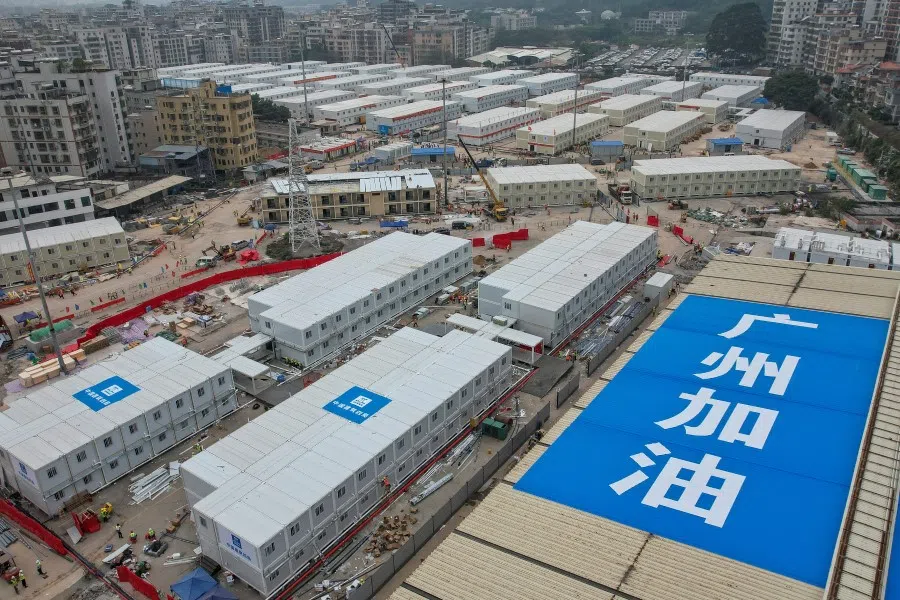
According to a report by daily paper New Express, logistics company SF Express released a statement in the first half of November saying that deliveries for online orders in and out of Guangzhou were partially suspended across the city's ten districts. A staff of express delivery company ZTO Express handling online orders also said that Baiyun district is one of the areas where warehouses of e-commerce businesses are located, and many delivery companies have major distribution facilities there, but due to the pandemic, businesses cannot dispatch goods and some delivery points have suspended collection and distribution.
Roller-coaster years
Guangdong is an important light industrial area in southern China, with a comprehensive wholesale market system in its capital Guangzhou. There are over 1,000 specialised wholesale markets in the city, dealing in shoes and hats, bags, daily necessities, toys, kitchenware, construction materials and other products. It is also an important source of goods for e-commerce businesses. Some platform businesses that operate outside of the city might in fact dispatch goods from Guangzhou's wholesale markets or factories.
In recent years, Guangzhou has actively supported e-commerce businesses, and the sector has grown rapidly, with delivery services there leading the country. Now that the pandemic has disrupted delivery services, e-commerce businesses that depend heavily on the sector face greater uncertainty.
Dongyu Cultural Company (东昱文化传播有限公司) founder Ye Maokai said this has been an extremely tough year for e-commerce businesses. Under Covid controls, logistics freezes happen from time to time, and many e-commerce businesses have been disrupted, including their workshop in Panyu, which was closed for three days due to a closure of the business park.
However, this year his company is taking on 80% less product shoots, as many clients worry about more uncertainty following updating new products...
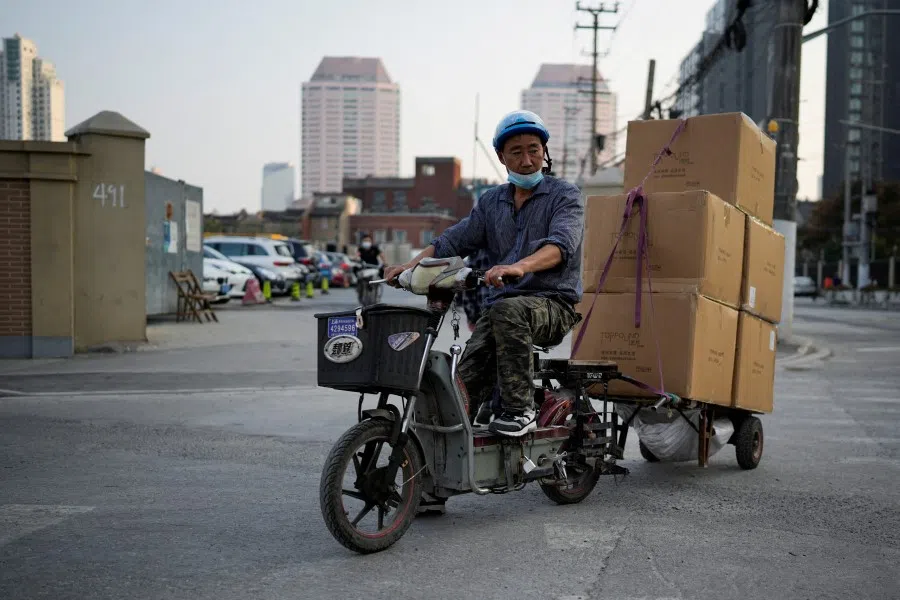
Ye's subsidiary company shoots product publicity images for e-commerce businesses. The end of the year is typically the high season for e-commerce businesses, and they would have many product shoots and do a last sprint to meet their annual sales targets. However, this year his company is taking on 80% less product shoots, as many clients worry about more uncertainty following updating new products, and have cancelled new product shoots at the last minute.
Adapting to Covid situation nimbly
Since October this year, the Covid-19 pandemic has spread across many parts of China, with 38,501 high-risk areas as of 30 November. According to the new epidemic prevention guidelines released by the Chinese government on 11 November, local lockdown measures can be implemented in high-risk areas.
"When the place of origin is not under lockdown, the destination is, and vice versa. When both are not under lockdown, the transit hub goes into lockdown." This sarcastic online post reflects the current state of those working in the e-commerce industry.
Peng, a Guangzhou e-commerce merchant selling toys and earphones on various e-commerce platforms, said his company had warehouses in Dongguan and Chenghai, Shantou. Recently, goods dispatches have been hindered due to the epidemic in both Dongguan and Shantou. The warehouse in Chenghai went under lockdown twice in a span of close to one month, and each time, goods could not be dispatched for a week.
Peng said whether the parcels can be dispatched and received is dependent on many factors and has to do with the place of origin, destination, transit hub and logistics route. It is also common to have packages returned midway.
...his store has suffered a near 70% decline in sales, and 30% of the loss is due to disruptions in the dispatch and receipt of goods.
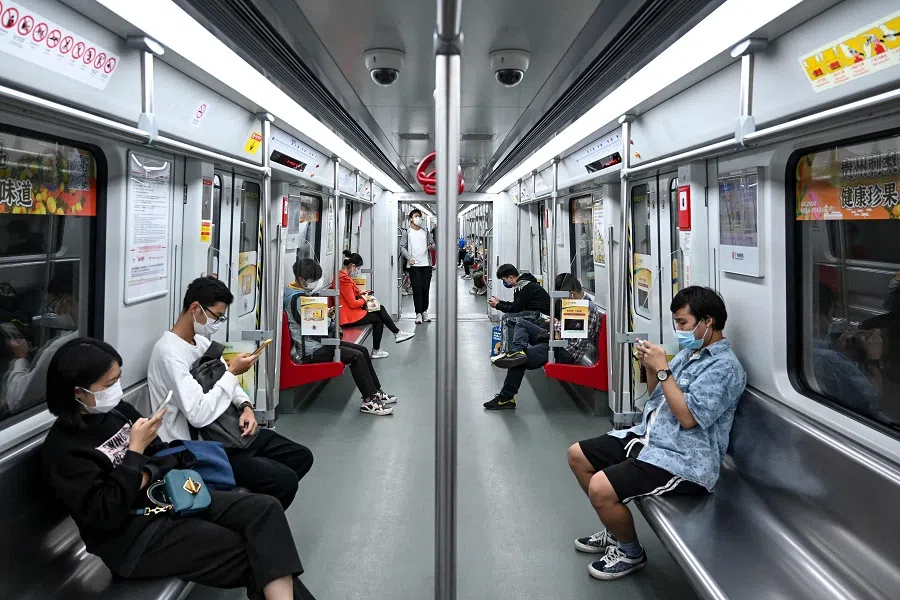
He said this year, as a result of the epidemic, his store has suffered a near 70% decline in sales, and 30% of the loss is due to disruptions in the dispatch and receipt of goods.
Recently, it has spread online that many delivery points across China have stopped operating, with some estimating that more than 65% of outlets are closed. On 30 November, People's Daily posted a response in a bid to refute the rumours. The response quoted a State Post Bureau personnel, who said that express delivery outlets in Covid-hit areas have indeed stopped operations, but do not constitute a large proportion, emphasising that the national post and express delivery network is operating steadily.
The upcoming Christmas season and new sales season are as unmissable as Singles' Day for e-commerce merchants.
Grasping opportunities as they come
To tackle the impact of the epidemic, many e-commerce platforms have also come up with appropriate policies, including waiving penalties for merchants should the dispatch of goods be cancelled or delayed due to the epidemic. However, e-commerce merchant Zheng Min said this would be of little help as businesses would have to put in more capital to bring in new customers after a drop in traffic.
Executive chairman of the Guangdong Provincial System Reform Research Association Peng Peng said the recent wave of the epidemic has definitely hit e-commerce businesses. However, he also pointed out that Guangzhou had undergone a lockdown previously, and the current lockdown is not a long one, and would still allow for the year-end dispatch of goods. The upcoming Christmas season and new sales season are as unmissable as Singles' Day for e-commerce merchants.
Three years into the pandemic, the convenience of online shopping has resulted in consumers becoming increasingly approving of e-commerce, and the sector is expected to grow in future.
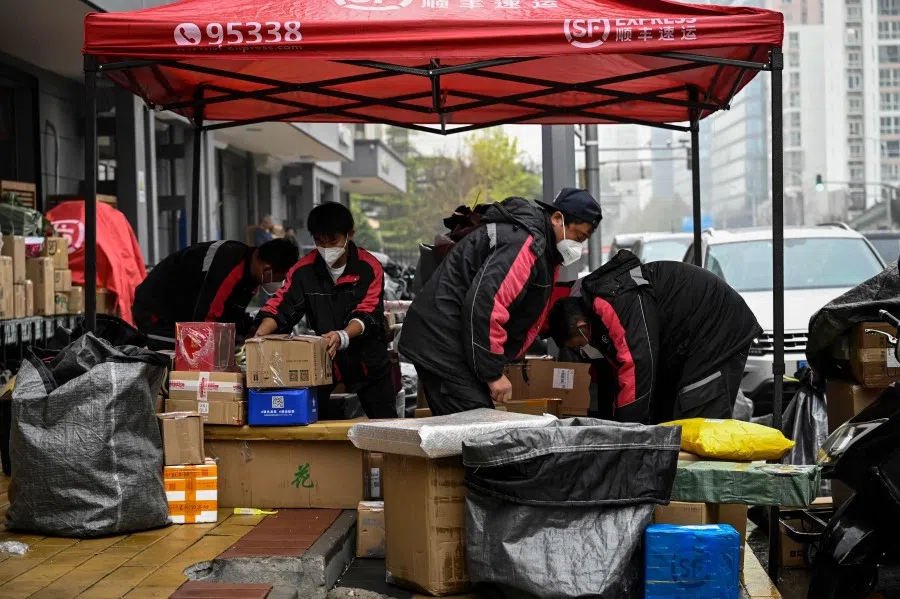
As for how the e-commerce industry will go post-Covid, Peng Peng said the general conditions, consumption habits and lifestyles of the Chinese, amongst other factors, have made it easier for Chinese consumers to accept e-commerce. Three years into the pandemic, the convenience of online shopping has resulted in consumers becoming increasingly approving of e-commerce, and the sector is expected to grow in future.
E-commerce merchant Peng also believes that despite the numerous challenges faced by industry players, tough times also accelerate industry evolution. Now is an opportune time for businesses to enhance their operations and adapt to the market. In the eyes of the young e-commerce entrepreneur, "the darkest times have passed".
Overseas online businesses and consumers implicated
China's lockdowns have not only impacted local businesses. Cross-border e-commerce merchants and overseas online consumers have also been affected.
Thirty-six-year-old Liang Meiling, a Singaporean merchant who has been running a pet supplies business since 2017, imports her products from Chinese e-commerce platform Taobao and 1688.com via ocean-consolidation services.
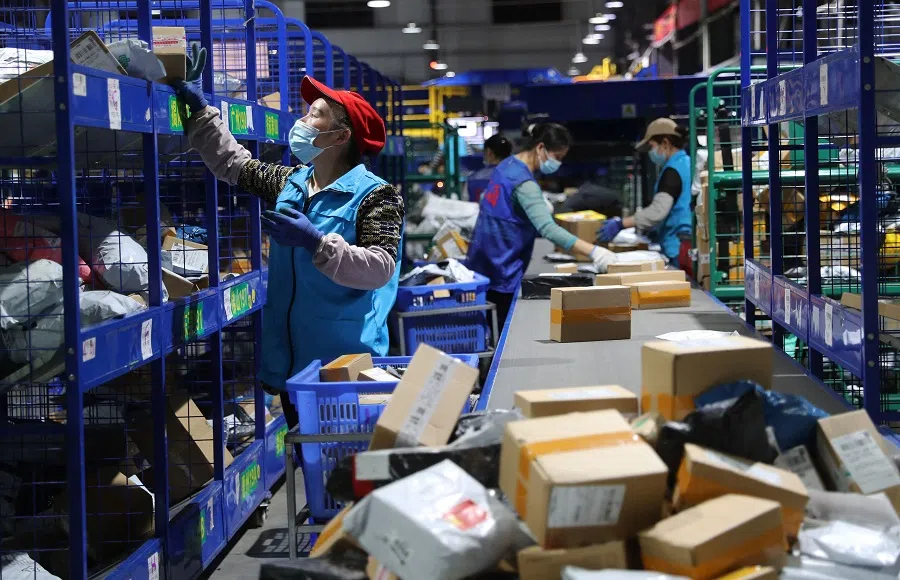
She told Zaobao that ocean consolidation services are still relatively stable albeit their longer cycles. However, as China's recent epidemic prevention and control measures have caused shipping delays, she has found it extremely challenging to import goods.
"Last time, the entire process from placing an order to receiving it took around 15 days. But now, one of my orders has been stuck for nearly two months with no updates yet," she lamented.
While Liang normally receives four shipments every month, only two packages arrived last month. Due to Covid controls, many orders are unfulfilled because merchants are either unable to ship packages or consolidation warehouses are unable to receive them.
"I can't hold a mega 12.12 sale this year. How do I hold a sale when I don't have goods?" - Liang Meiling, Singaporean running a pet supplies business
International freight forwarders affected
While Liang's customers understand that products are out of stock due to China's pandemic situation, she has lost S$5,000 to S$8,000 of her monthly revenue. She estimates that this will go on for another two or three months, and laments that she will have to forgo the year end sales promotion. She said, "I can't hold a mega 12.12 sale this year. How do I hold a sale when I don't have goods?"
The consolidation warehouses of the many international freight forwarders that overseas merchants including Liang engage are located in Guangzhou's Baiyun district. According to industry yellow pages 11467.com, there are over 1,200 freight forwarders in Baiyun. But because the district is one of the hardest-hit areas in Guangzhou, some regions have been locked down and delivery services have been suspended since October.
... since this year, the company's consolidation warehouse in Baiyun district has already been locked down four times due to the pandemic, with the lockdown in April lasting the longest at 25 days.
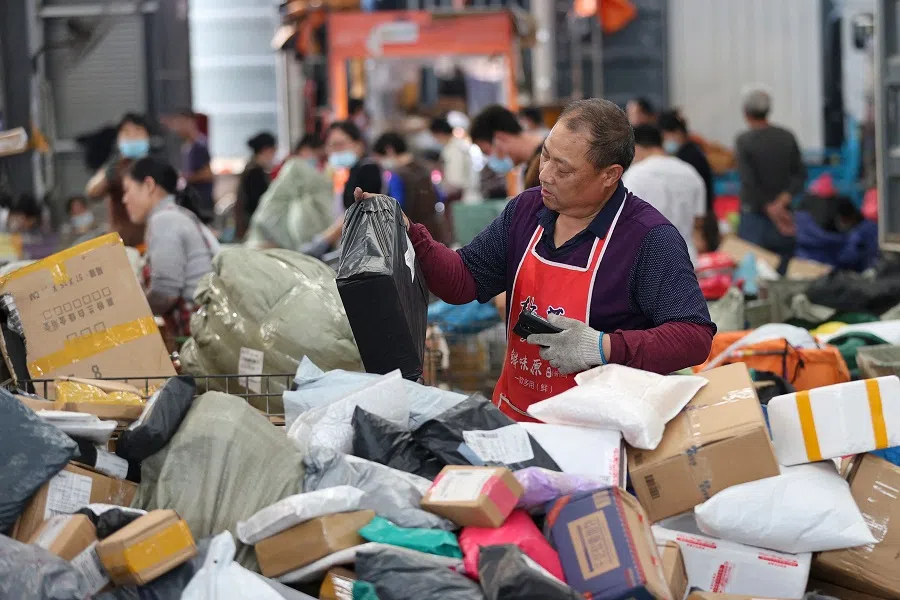
Twenty-six-year-old Yao Xingyuan, general warehouse manager of Taobao2SG, a company providing freight forwarding services from China to Singapore, told Zaobao that since this year, the company's consolidation warehouse in Baiyun district has already been locked down four times due to the pandemic, with the lockdown in April lasting the longest at 25 days. The warehouse was again locked down from 20 to 28 November, and is gradually resuming operations at the moment.
He told Zaobao that the Covid lockdowns have resulted in the double whammy of undelivered parcels and workers in affected areas being unable to work.
Although employees have gradually returned to work, he estimates that it would take about a week before delivery services can fully resume, only if Covid measures do not tighten again.
... local businesses did attempt to communicate their problems with the government in hopes that the government would issue passes for logistics services or offer other alternatives.
Yao said, at the height of the pandemic, deliveries could not even reach Baiyun, and Taobao had automatically configured deliveries to Baiyun as "unavailable due to the pandemic", severely affecting many of their clients' orders. During the Singles' Day sale this year, Yao also pointed out that the warehouse only received an average of 4,600 pieces of goods every day, compared to over 8,000 pieces of goods during the same period in previous years.
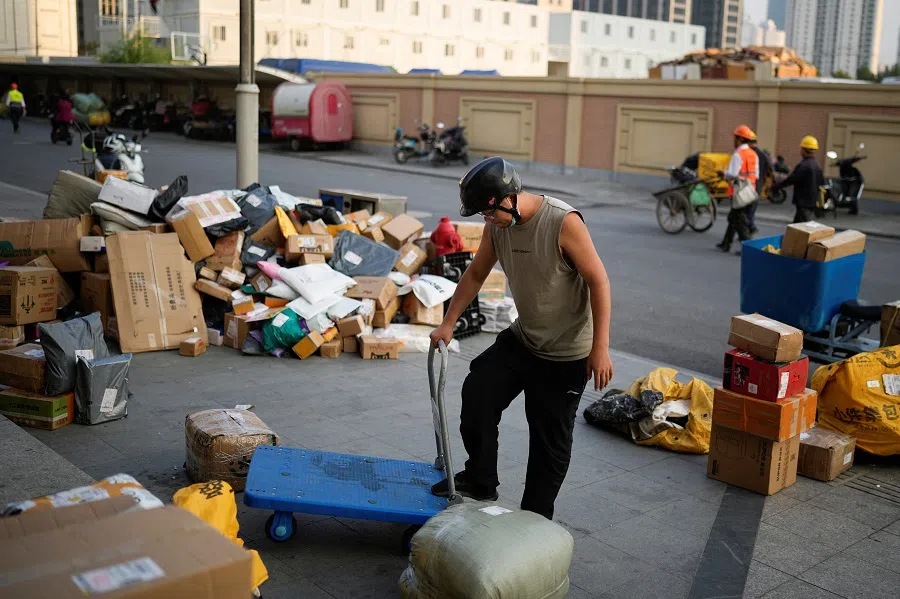
He mentioned that local businesses did attempt to communicate their problems with the government in hopes that the government would issue passes for logistics services or offer other alternatives. However, the problem is yet to be solved.
Spare warehouses to the rescue
Thirty-four-year-old Jason Zhu is the owner of Jichen international freight company (吉辰国际货运公司) which has businesses covering the Southeast Asian region. He told Zaobao that his company had set up a spare warehouse in the neighbouring Foshan city to handle failed deliveries due to the Baiyun lockdowns, even if this meant increased costs.
But he admitted that even with a spare warehouse, there was no guarantee that business would not be affected.
This should have been a good time for Singaporean consumers to place orders, but the pandemic messed up everything.
He said, "The whole of China is affected by the pandemic and not a single region can escape unscathed. So, there is no better way now than to wait for the lockdown to be lifted so that delivery services can resume."
Zhu lamented that late last year, shipping costs skyrocketed and shipping containers were in shortage. Now, freight rates are falling and the Singapore dollar is also at a high level against the renminbi. This should have been a good time for Singaporean consumers to place orders, but the pandemic messed up everything.
This article was first published in Lianhe Zaobao as "购物节订单虽不少 疫情管控严商家有货发不出".
Related: Chinese internet giants gear up for global e-commerce push | Shanghai's Covid shutdown is disrupting domestic and global supply chains | China e-commerce players tap ASEAN market for growth | Salary cuts for senior managers: Is JD.com founder Richard Liu championing 'common prosperity'? | Export slowdown reveals cracks in one of China's economic pillars





![[Big read] When the Arctic opens, what happens to Singapore?](https://cassette.sphdigital.com.sg/image/thinkchina/da65edebca34645c711c55e83e9877109b3c53847ebb1305573974651df1d13a)
